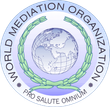R19 Mediator
International Trade and Cross-Border
Conflict Management & Dispute Resolution
It is important to use a certified
mediator to get the best possible resolution.
WHAT IS MEDIATION AND HOW DOES IT WORK?
Mediation is collaborative rather than adversarial. It is about communication rather than confrontation.
The Mediator's sole function is to assist the participants to agree on the terms of settlement which may then be ratified by the Court.
Mediation is a process that assists participants to work through and generate solutions collaboratively rather than being imposed by an arbitration, tribunal or court. Mediation has a stronger focus on the future and is not about apportioning blame. It is Confidential and Without Prejudice as nothing said during the mediation can be used as evidence in any future action or court proceedings. Parties in civil cases are required to consider mediation seriously before going to court according to the CPR.
The mediator is a third party, independent and neutral person who facilitates the process and communication with the focus on the needs, interests and rights of the participants. You retain the power to influence the outcome. You are free to terminate the mediation before settlement and to initiate or continue with court proceedings.
BENEFITS
Mediation can save time, money and emotional stress
as it operates much faster
and in a different way to the court, often conflicts and disputes are resolved in a matter of hours and always in private, away from the public arena, "what happens in mediation stays in mediation". It is also more flexible
as the mediation can be undertaken at a more convenient time and location for the participants than a court hearing.
The mediator is closer
to the needs of the participants than a judge or arbitrator is to the parties. With a dispute being resolved in mediation the participants do not need to attend a court hearing as they will have agreed and signed a settlement agreement which is the final stage of the mediation process.
The participants in a facilitative mediation are in
control
of the process as opposed to litigation or in court where an arbitrator or judge decides.
Mediation caters for any
level of dispute and whether national or international. Mediation can occur at any time before or during litigation.
Even if the participants were not to create a settlement agreement at the end of the mediation process then the act of going through the process will have helped to identify strengths & weaknesses
of your case.
If you still want to go directly to court then visit the government website here Make a Court Claim for Money
otherwise please feel free to contact R19
for further information.
"Discourage litigation. Persuade your neighbours to compromise whenever you can."
- Abraham Lincoln
"The courts of this country should not be the places where resolution of disputes begins. They should be the places where the disputes end after alternative methods of resolving disputes have been considered and tried."
- Sandra Day O'Connor, Former Associate Justice of the Supreme Court of the United States and first woman to serve on the Court.
“An ounce of mediation is worth a pound of arbitration and a ton of litigation!”
- Joseph Grynbaum
“In the middle of every difficulty lies opportunity.”
- Albert Einstein
“The operating system of the universe is far too vast for us to really know what outcome a problem will have but mediation makes it better through a process of perceptual harmonisation”.
- Jonathan Griffith, Mediator
"When you are on the way to court with your accuser, try to
settle the matter before you get there. Otherwise, your accuser
may drag you before the judge, who will hand you over to an
officer, who will throw you into prison."
- New Testament, Luke 12:58




